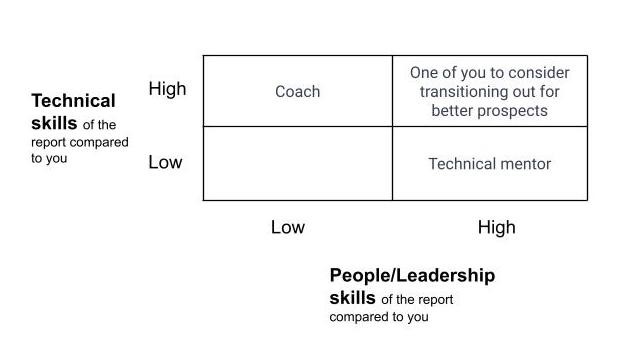When you realize that your team member is better than you, what would you do?
First, congratulate yourself that you are not one of those “leaders” who carefully avoid hiring people who can be a potential threat to their position. You have made the right choice of hiring smarter people.
A couple of common but ineffective responses when leaders face this situation –
Bad response 1: The “leader” gets into offensive mode. He/she sees the other person as a threat, tries multiple things to hide from the situation and establishes his/her power. He/she hoards information, finds unreasonable faults, belittles the team member in front of others, takes away tasks from the team member and establishes his/her own importance.
Bad response 2: Imposture syndrome, mental panic and internal struggle – all get started. The leader is in a constant state of worry about whether he/she will be exposed
What would be the right response?
The right response would be a three-step act –
- Get in touch with your feelings
- Get clarity and
- Adjust your roles for mutual success
Step 1: Getting in touch with your feeling –
- Yes, it is quite common to feel insecure when faced with such a situation. Nothing wrong with that. Acknowledging (to yourself) that the team member is better than you and that you are feeling insecure is very important.
- In a multidecade career, it is impossible to have not encountered this situation at least once [unless you repeatedly make the detrimental choice of not hiring people smarter than you]. So chill – if not now, this would have any ways happened later.
Step 2: Understanding the “better” aspects a little better –
List down the ‘n’ essential skills/behaviours/capabilities for your role and find out the ones this team member fares better than you.
To simplify this post, I am grouping these skills into two broad categories of ‘technical capabilities’ and ‘leadership/people capabilities’.
Note: By technical skills, I am referring to whatever the core skills required to perform the job role well (e.g. Accounting, risk management etc for finance leaders, customer-first thinking, product sense etc for product leaders)

The following possibilities emerge and the corresponding right responses are below –
- The team member is better technically but not in leadership/people capabilities – This is quite a common scenario as you grow in your career. Next-gen folks do better technically for a variety of reasons. Turn this into a win-win situation where you can leverage his/her technical skills and complement them by providing leadership and guidance on people-related issues. You can act as a coach and groom him/her into a great leader.
- The team member is better in leadership/people capabilities but lags on the technical front – You become a technical mentor directing/helping him/her to improve relevant skills. The team member should realize that having leadership skills without technical skills can be a huge impediment to career growth.
- The team member is better than you in most/all important aspects – This could be a tricky situation. but not always. If you had an aspiring role elsewhere, you could slowly transition out paving the way for the team member to take your current role. Alternatively, you could learn the aspirations of your team member and help them get their dream role (without tricking them out of your way). Or you both could co-exist and contribute in the same roles for a while learning from each other (yes, that is possible).
The above approach (especially for the third scenario) may not work in a stagnant company or industry. When there is a lack of new & better opportunities firms get politicized very quickly as people are busy protecting their current turf. Whenever you have a choice, choose your industry wisely 🙂.
